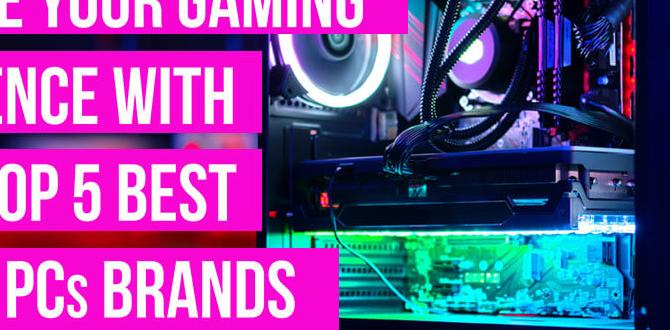As a tech enthusiast and avid gamer, understanding the components of your gaming PC is crucial to ensure optimal performance. When delving into the world of hardware upgrades, it’s essential to assess your system’s current capabilities, identify potential bottleneck components, and consider future gaming needs to stay ahead of the curve. In this article, I will guide you through the process of monitoring your system performance and making informed decisions on upgrading your gaming rig.
Monitor Your System Performance
Before deciding on upgrades, it’s important to evaluate how your current system is performing. Keep an eye on key metrics such as CPU and GPU utilization, RAM usage, and temperatures while gaming. Tools like MSI Afterburner, HWiNFO, or Task Manager can provide valuable insights into system performance.
Assess Current Hardware Capabilities
Take stock of your existing hardware components, including the CPU, GPU, RAM, storage drives, and power supply. Assess whether these components meet the requirements of the latest games and software. Look for any outdated or underperforming parts that may be hindering your gaming experience.
Identify Bottleneck Components
Determine if any components are causing bottlenecks in your system performance. A bottleneck occurs when one hardware component is significantly limiting the performance of the entire system. Common bottleneck points include outdated CPUs, insufficient RAM, or underpowered GPUs. Addressing these bottlenecks can lead to significant performance improvements.
Consider Future Gaming Needs
Anticipate the demands of upcoming games and software to ensure your system remains capable of handling new releases. Consider factors such as higher resolutions, frame rates, and graphic settings. Future-proofing your gaming PC can involve upgrading to more powerful hardware to meet evolving performance standards.
Conclusion
Upgrading your gaming PC requires careful consideration of your system’s performance, current hardware capabilities, potential bottlenecks, and future gaming needs. By monitoring your system and making informed decisions based on performance metrics and gaming requirements, you can ensure a smooth and enjoyable gaming experience. Stay ahead of the curve by upgrading strategically and keeping your gaming rig up to date.
FAQs
1. How often should I upgrade my gaming PC?
It depends on your gaming habits and the performance requirements of the latest games. Generally, upgrading every 2-3 years can help keep your system up to date.
2. Which components have the most significant impact on gaming performance?
The GPU and CPU are key components that heavily influence gaming performance. Upgrading these parts can result in noticeable improvements in frame rates and graphical fidelity.
3. Is it better to upgrade individual components or buy a new gaming PC?
It depends on your budget and the extent of the upgrades needed. Sometimes, upgrading individual components can be more cost-effective than purchasing a whole new system.
4. How can I determine if my PC is experiencing a bottleneck?
Monitoring performance metrics like CPU and GPU utilization can help identify bottleneck issues. If one component is consistently maxed out while others are underutilized, it may indicate a bottleneck.
5. What are some signs that my gaming PC needs an upgrade?
Symptoms of an aging PC that may require upgrades include sluggish performance, frequent crashes, inability to run newer games smoothly, and overheating issues. Upgrading hardware can address these issues and improve overall performance.
